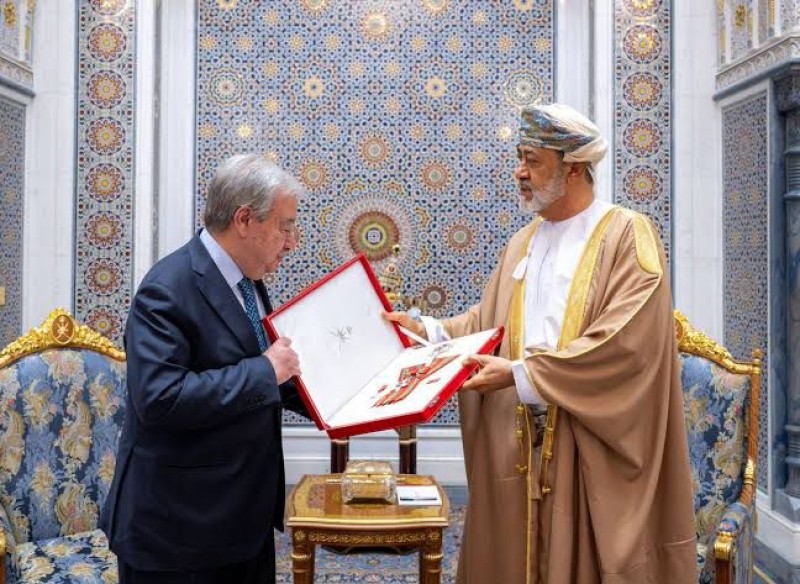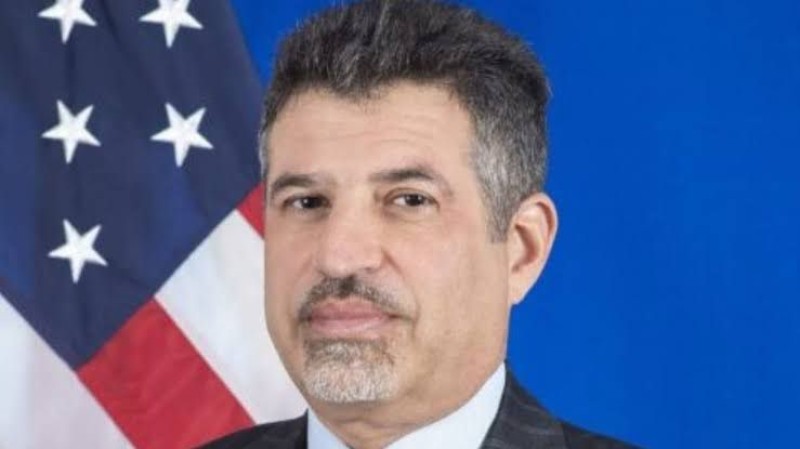Saudi envoy says Hodeidah deal make-or-break for Yemen peace efforts


A political solution to nearly four years of war in Yemen is possible as long as the shaky ceasefire deal for the northern port city of Hodeidah takes hold, Saudi Arabia’s influential ambassador to Yemen has told IRIN.
Mohammed al-Jaber, who is the public face of Saudi Arabia in Yemen and is said to have a direct line to Crown Prince Mohammad bin Salman, suggested the Hodeidah deal could lead to further fruitful UN-backed peace talks if it succeeds but might be their undoing if it doesn’t.
“I think there is no [next] effective round of talks between Yemenis if Hodeidah is not implemented,” al-Jaber told IRIN in an interview in his Riyadh office. “If the Houthis implement Hodeidah, everybody will pressure all parties to come to the table and make it succeed.”
The next round of what the UN officially calls “political consultations” are expected later this month, but warring sides are still at odds over the finer details of the Hodeidah deal and there are fears it might soon collapse. Aid groups warn of a spiral towards famine if fighting restarts around the city – a key entry point for commercial imports and humanitarian aid, especially for parts of the country under Houthi control.
Hashed out at December negotiations near Stockholm but still to come into effect, the ceasefire deal is supposed to see both Saudi-led coalition forces and Houthi rebels withdraw from Hodeidah city and eventually Hodeidah province, with “local security forces” taking over and the UN playing some role in managing the port.
While the ambassador was quick to emphasise that he is not an official party to the negotiations – Saudi Arabia’s position is not to negotiate with the Houthis and the UN process is two-sided, between the internationally recognised Yemeni government and the Houthi rebels – he was in Stockholm and recounted locations, attendees, and results (or lack of) past talks in detail.
IRIN sat down with al-Jaber at a pivotal point in the 46-month war. The conflict has left tens of thousands deadand millions without enough to eat, while decimating a health system that has been unable to cope with two waves of cholera and destroying the country’s already weak economy.
Away from the debate over Hodeidah, the broader war is ongoing: a Houthi drone hit a Yemeni military parade the day after IRIN spoke with the ambassador, fighting in the southern city of Taiz continues, and the coalition has been pounding the capital city of Sana’a with airstrikes.
In a wide-ranging interview in his Riyadh office, al-Jaber said his country is waging a “clean war” in Yemen, is doing all it can to lessen Yemen’s humanitarian crisis, and is already planning for its redevelopment and reconstruction despite ongoing fighting.
A military strategist by training who heads up two bodies that focus on humanitarian, development, and restronstruction aid to Yemen, the ambassador strongly dismissed the idea that any of this assistance was an attempt to polish his country’s tarnished public image.
“It’s not PR. And anybody who says that wants to hurt us,” al-Jaber said. “But if someone is neutral, he should study and see with his eyes and research how much Saudi Arabia did for [funding] the UN organisations, [with its own relief projects], and for the economy….[Yemenis] are our permanent brothers, and we are there to support [the] Yemeni government and Yemeni people.”
Saudi Arabia’s public position on Yemen has been fairly consistent since March 2015, when it began airstrikes along with a multi-country coalition to support the government of President Abd Rabbu Mansour Hadi, who was forced to flee the country by Houthi rebels and their allies, including fighters who sided with former president Ali Abdullah Saleh.
Saudi Arabia sees the Houthis as an Iranian proxy and a threat to its borders and says its mission in Yemen is to restore Hadi’s government.
Few expected the war to drag on this long – in fact, the coalition said it was ending the initial military operation a month into its bombing, officially swapping it out for “Operation Restoring Hope” – a peacebuilding effort aimed at forging a political solution in Yemen and shoring up Saudi Arabia’s national security.
Al-Jaber, appointed to his job in late 2014, also used the word “hope” when discussing the Saudi role in the war.
“We are fighting there to restore hopes, not to kill Yemenis,” he said. “We spent billions of dollars to support the war, the economy, the humanitarian situation, and we will continue to support Yemen. We don’t want Yemenis to hate us or to see us as their enemy. We are not their enemy.”
He said he remained “100 percent sure” that the coalition was waging the war in line with international humanitarian law.
“We are responsible countries,” he said. “We are 12 countries [in the coalition] and we implement NATO standards… I think the coalition did a good job. It is a clean war for us, because we are aware of what we are doing there in Yemen. We are there to reinstate their state.”
Saudi Arabia’s air campaign has been blamed for the majority of the nearly 7,000 violent civilian deaths the UN has been able to count in the war.
In August, an airstrike hit a bus full of children in a rebel-held northern part of the country, killing a reported 40 children and 51 people total – one of several civilian atrocities that rights groups say violate international law. A UN group of experts has said it believes individuals on all sides of Yemen’s conflict may have committed war crimes.
In response to questions about such strikes, as well as hits on civilian infrastructure like hospitals, al-Jaber admitted that Saudi Arabia had “made mistakes”, much as “other countries do, during war.”
“We investigate each accident,” he said, referring to the Joint Incidents Assessment Team, or JIAT – a body set up to look into “claims and accidents” in coalition operations but whose members are not disclosed to the public.
Findings are usually only released in summary press releases and can be hard to track, but an August report by Human Rights Watch said JIAT investigations were inadequate and that the watchdog was “unaware of any concrete steps the coalition has taken to implement a compensation process or to hold individuals accountable for possible war crimes.”
Al-Jaber said the coalition began the compensation process “a couple of months ago” but that he didn’t know how many people had been compensated so far. “I know they started,” he said. “The Yemeni government… sent us a list [of names] and there is a fund responsible for that… we are trying to accelerate this mechanism.”
The international community says there’s no alternative to Hodeidah for avoiding mass hunger in the country, not only because of the port’s overall capacity – including to store and mill flour – but also because it is in the north of the country where 70 percent of the population lives (and Houthis are in control).
In November 2018, the Saudi-led coalition closed most air, sea, and land entries to Yemen for two weeks after a Houthi rocket was fired at Riyadh, causing aid agencies to warn of imminent catastrophe. Even before that, aid groups said the coalition had delayed and diverted the entry of crucial supplies, including fuel.
Al-Jaber said the “humanitarian situation was pressure on everybody”, but that he believed the importance of Hodeidah had been exaggerated and that “UN organisations are trying to ignore Aden port”.
The Saudi-led coalition has been pushing for increased use of Aden, but UN relief chief Mark Lowcock said earlier this month that the southern port has a “severe congestion” problem. Trucking supplies from Aden to the north adds cost and can be risky, which al-Jaber admitted.
In a briefing on 9 January at the UN Security Council, Lowcock said that fuel imports are now rising and more ships are trying to get to Yemen’s ports, but commercial food imports were still at their lowest since the UN began monitoring in 2016.
Al-Jaber said the coalition had been unfairly accused of deepening the humanitarian crisis through delays in allowing shipping to reach Yemen, particularly Hodeidah. What he called a “misunderstanding” is now resolved and the UN and the coalition have a mechanism to ensure ship clearance at Hodeidah in “24 hours maximum”, he added.
If anything, al-Jaber said, Saudi Arabia is lessening the humanitarian crisis. It has contributed $901 million to UN-led humanitarian appeals for Yemen between 2015 and 2018, according to UN funding data, and he also mentioned the $2.2 billion Saudi Arabia had deposited in Yemen’s Central Bank and $350 million in letters of credit to Yemeni importers he said had recently been issued (a number IRIN could not independently verify).
While all eyes remain on Hodeidah, al-Jaber was also keen to talk about development and reconstruction – an approach he said feeds into the two main aims of the war: “to restore the legitimate government of Yemen, and to secure our national security”.
Al-Jaber said the Saudi Development and Reconstruction Program for Yemen, which he has been working on for the past few months, is already being rolled out in parts of the country the government controls.
IRIN wasn’t shown the overall plan but was given a PowerPoint presentation on projects that have begun – new school buses, textbooks, and beefing up power stations by shipping $60 million in oil derivatives each month – as well as some that are still in the works, like new hospitals and an airport.
But how do you reconstruct a country you don’t completely control, in the midst of a war?
Al-Jaber, who said he had briefed the UN about his plans and invited them to collaborate, anticipated support from other organisations, including the World Bank, and said it’s best to start in areas the coalition controls as “they are safe”.
His strategy also involves beefing up borders to clamp down on smuggling, and making sure al-Qaeda and so-called Islamic State (Da’esh in its Arabic acronym) do not take hold in the country.
He said he was “very worried about” this, both because the Houthis could use their presence as an excuse to continue fighting and because “some people, some tribes in the middle and the south, also say they will engage with al-Qaeda to fight the Houthis.”
The disparate nature of the coalition Saudi Arabia heads, and the loose and often tense alliances that support Hadi’s government, mean Yemen’s war could yet fracture into a collection of disastrous smaller conflicts.
Al-Jaber was candid that several parties currently on side with the government, including southern separatists and the powerful Islamist Islah party, may not fully back Hadi. Rather, he explained, they agree with the “Hadi project” – that is, the legitimacy of his government.
“When the Yemenis agree on a comprehensive political solution, we will stop the military track which supports the legitimate Yemeni government,” the ambassador said. “And [then] we will support their security, economy, the political process, and work with Yemenis to finish the political process, to build their economy and develop and reconstruct their country.”
AFP.

Muscat – The Office of the UN Special Envoy to Yemen said Monday that UN Secretary-General António Guterres discussed the overall situ…

Riyadh — U.S. Ambassador to Yemen, Steven Fagin, on Monday underscored Washington’s commitment to the unity of the Presidential Leaders…

Abyan — The Southern Transitional Council (STC) in Yemen announced on Monday the launch of wide-scale military operations in Abyan province,…